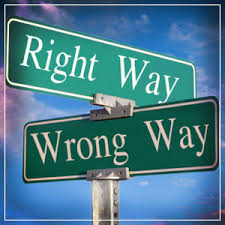 Having received many emails in response to my original post, and having spoken to others who read the post, it is clear that this conversation resonates for those of us who wrestle with our image and relationship to G!d. Evan wrote me a response which I would life to share with you, most importantly to raise up the converation to include your voices. If you are of mind to respond in writing, I ask that you do so on the Blog itself, so that we might see what others are thinking, and to talk to one another if the situation warrants. As Evan points out in his Ok to me to post this, "if we are really community building than I think you should post this response." Thank you Evan, for that insight. ******** April 23, 2014 My turn? In case anyone is in doubt, Reb Mark and I are dear friends. We speak to each other and about each other with love. And if you have been to Minyan Oneg Shabbat, you know that Mark always invites us to participate in ways and at times that one might never see in another synagogue. And I may have taken that license too far and I have apologized to Mark and I extend that apology to all of you as well. Mark, to my ear, has rejected that apology and was enlivened by the challenge and found value in the “makhloket”. (Mark's note: In a subsequent e-mail to Evan, I made it clear that my post was in no way a rejection of his apology, but rather an attempt to reconcile our different viewpoints. Whether that can be accomplished is still up in the air) What I tried to convey in the moment, was something about the quality of an Aliyah – coming to Torah to say a Blessing over Torah, to God, with our Souls. The Blessing sanctifies the moment and unwraps or illuminates the kedusha, the holiness. So when we are called to Torah in this holy moment, we honor God and Torah, in my mind, with a sense of yirah/awe/fear. I would not come before a sovereign or a parent with my grudges or complaints or disgruntlement as my first foot forward. While I can’t leave myself behind, I can’t expect grace, compassion, and goodness to ensue if I am not willing to start off with a an approach that entices grace, compassion and goodness. When Mark crafted his Aliyah, his calling up to the Torah (Mark's note: Minyan Oneg Shabbat follows the Jewish Renewal practice of setting an intention before each reading through which people in the kahal are invited by the Torah reading itself to give honor the Torah. In this way more than one person can be moved to respond to the call of any one aliyah) he pointed out the Rabbinic tailoring of the text, so that we call upon Adonai the God of Compassion but stop before we get to the Adonai of retribution. In calling us to Torah, I heard Mark to invite us to bring up our negative reaction to the language that was retributive. I heard, and in my hearing there was certainly some filtering or mishearing, that Mark’s words could mean that we come to Torah to say we honor only the God of mercy and loving kindness but not the God of retribution. I had hoped to convey that we don’t get to pick and choose our God, in the sense that the God of all, heaven and earth, good and evil, is the God we address when we step forward to Torah. So I ask you, which do you think would be most effective in a moment of kedushah standing before Torah: Hey You, God, what do you mean you want to mete out punishment to the next generations; what kind of shmendrick are you? OR God of mercy and compassion, may we together create a world where no one feels that the sins of their ancestors has been levied upon them – when we clean up our environment so that future generations live safely on this beautiful planet, when we cease fighting so there is no more war, when each of us cares for the other as much as we care for ourselves so that love begets love. Some will disagree with me and say that it is okay to have an Aliyah to Torah inviting someone to bring forward their frustration, anger, or hurt. In my understanding, I bring my whole self to Torah in a way that honors God and the relationship I want to have with God as well as take the holiness of the moment as an opportunity to offer up what I can so that we may all draw down more love, mercy and kindness. I can be angry with God, but my concern was about time and place. The exalted Rabbi Levi Yitzchak of Berditchev was known for ascending the Bimah on the High Holidays to confront God with his complaints about how the Jewish people had suffered in the early 19th Century. He did so with a deep attachment to God’s love, mercy and blessings; but cajoling God nonetheless to be gracious to God’s people Israel. So clearly, there is support in Levi Yitchak’s legacy for both Mark’s invitation and my concern about positioning. Mark’s Aliyah brought poignancy and urgency to the Torah being read. He implored us to deepen our relationship with God by reading fully and considering deeply the full text before us. I had only cautioned him, I had hoped, so that in ascending to kiss the Torah, those who would offer blessings did so in a manner befitting God and the holiness of an Aliyah. (Mark's note: Thank you Evan. Thoughts anyone?)
1 Comment
 Shalom my friends I 'd like to briefly address an interaction that occurred yesterday during Minyan MOSH between me and my friend, erev rav (on the cusp of Rabbi) Evan Krame. This may be of interest even if you were not one of the 20 sweet souls who were present. I presented a kavannah based upon the rabbinic decision to edit the end of the section of the 13 attributes (Exodus 34:6-7), an edit which makes it more palatable for us to chant these words on the three pilgimage festivals as well as the high holidays. The change leaves out the end of the sentence, where G!d says, "yet He does not remit all punishment, but visits the iniquity of parentd upon children and children's children, upon the third and fourth generation." Admittedly, including these words after chanting "a G!d compassionate and gracious, slow to anger, abounding in kindness and faithfulness, extending kindness to the thousandth generation, forgiving iniquity, transgression, and sin", would be a difficult reality and backdrop to pray under. There is a similar rabbinic edit in the text of Isaiah (45:7) that we davven every morning, from the original text, "I make peace and create evil/bad/woe" to "I make peace and create everything." Another softening of the reality. Evan took me to task saying that "we can't choose the G!d that we want." In theory I agree with him, but in practice, I tend to agree with the rabbis impulse that recognizes that on occasion, we can choose the aspect(s) of G!d that serve(s) to strengthen and support us. Now, whether you agree or disagree with the manner in which Evan's challenge was presented, I would like to direct us to two rabbincal responses that may help in viewing our discussion. First, remember that the Talmud is replete with rabbinic disagreements. The underlying understanding of competing voices is "eylu v'eylu divre Elohim Hayim", "these AND these are the words of the living G-d". In this way, Jewish wisdom never utilizes a zero-sum game, one which says that if I'm right, then you must be wrong. Rather, it seeks to embrace that which seems to be opposite in order to leave room for multiple and oftentimes divergent understandings of the same phenomena. In that way, minority opinions are recognized as potential majority opinions at some time in the future. Secondly, regarding the issue of whether or not we can choose an image of G!d that is easier for each of us as individuals to cling to/yearn for, the Talmud explicitly teaches (Berachot 54a) חיב אדם לברך על הרעה כשם שמברך על הטובה: A person is obligated to bless G!d for the the bad just as he blesses G!d for the good." My sense is that this is an invitation into a deep state of equanimity, that sense of calmness and emotional stability that comes with breathing into, most especially in times of trouble, the truth that "eylu v'eylu", this too (the "bad") is also life. And, as I mentioned yesterday, what seems like a blessing might be a curse, and what seems like a curse, may be a blessing. In the end, it is not whose argument is correc, mine or Evan's, but rather it is incumbant on us to listen for the truth calling out from each side. May all of our arguments be לשם השמים, for the sake of heaven. Blessings for a continued sweet and meaningful Pesach. R' Mark MinyanOnegShabbat.org [email protected] Rabbi Mark Novak 202-362-3270 |
Mark Novak is a "free-range" rabbi who lives in Washington DC and works, well, just about everywhere. In 2012 he founded Minyan Oneg Shabbat, home to MOSH (Minyan Oneg Shabbat), MindfulMOSH (Jewish mindfulness gathering), and Archives
June 2017
Categories
All
|
 RSS Feed
RSS Feed
